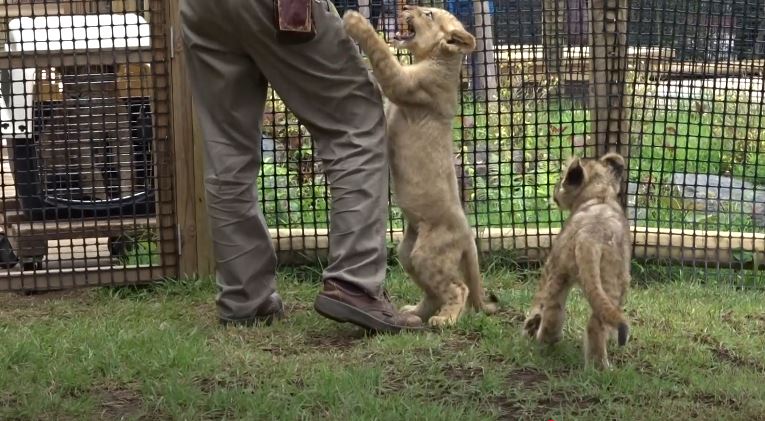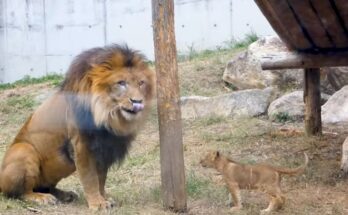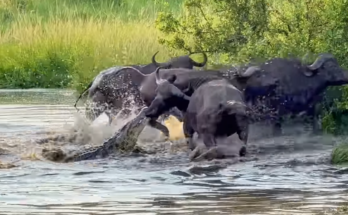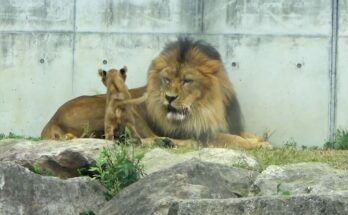
At the foot of Japan’s iconic Mount Fuji, a heart-melting scene unfolds at Fuji Safari Park—a group of baby lions letting out high-pitched, desperate cries as they eagerly await feeding time. Their tiny roars echo through the nursery area, not with threat, but with urgency and innocence, as they call out for their next bottle of milk.
These young cubs, only a few weeks old, are being hand-reared by zookeepers, a common practice in wildlife parks to ensure their health and survival during the earliest stages of life. With wide eyes, wobbly legs, and soft fur still covered in subtle baby spots, the cubs gather around the entrance of their enclosure, clearly recognizing the sound and scent of the approaching zookeeper.
The moment the keeper arrives, bottle in hand, the cubs light up with excitement. They scramble over one another, each desperate to be the first to latch onto the bottle. Their cries grow louder, almost like a chorus, full of urgency and adorable impatience. One by one, the zookeeper feeds them, gently cradling each cub and allowing it to nurse contentedly.
It’s a beautiful and tender moment that showcases the deep bond between animals and caretakers. While these baby lions will eventually grow into powerful predators, for now, they are completely dependent—fragile, hungry, and in need of warmth, care, and nourishment.
Visitors lucky enough to witness this daily ritual are treated to one of the most endearing sights in the animal kingdom. At Fuji Safari Park, these hungry little cubs not only capture milk—they capture hearts. Their tiny cries, playful nibbles, and happy purrs after feeding serve as a powerful reminder of the early innocence and vulnerability behind even the fiercest of animals.


